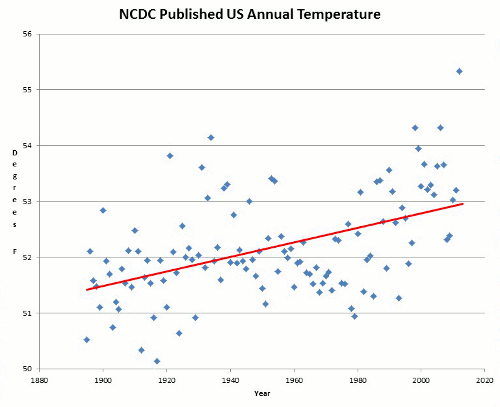But the issue is sometimes not how the article was written but how it was edited by the various media outlets.
Take as an example this article by Christopher Booker and Richard North, called “The Great Biofuels Con”, originally written for the UK “Telegraph” on the 12 July 2008. It appeared three days later and heavily re-edited in Melbourne's “The Age.” The re-editing made the article read very differently (despite not a word being changed) : Some extracts include:
Original text:
As damaging as anything to the belief that biofuels could help save the planet from global warming have been various studies showing that producing biofuels can give off more carbon dioxide than they save. So devastating has been this backlash that even the British Government, which prides itself on being the greenest of the green, commissioned a review, published last Monday, urging a slowdown in the move to biofuels. When this recommendation was endorsed by senior ministers, this put the UK directly at odds with a European Union policy to which it had already signed up. But the EU is firmly holding its line, saying it has no intention of lowering its target.
Re-Edited version:
As damaging as anything to the belief that biofuels could help save the planet from global warming have been various studies showing that producing biofuels can give off more carbon dioxide than they save.
So devastating has been this backlash that even the British Government, which prides itself on being the greenest of the green, commissioned a review, published last Monday, urging a slowdown in the move to biofuels.
When this recommendation was endorsed by senior ministers, this put the UK directly at odds with a European Union policy to which it had already signed up. But the EU is firmly holding its line, saying it has no intention of lowering its target.
Original text:
Stage Three began in 1992, when two developments coincided to move biofuels even higher up the political agenda. First, following a further oil price hike after the first Gulf War, Washington and Brussels believed that biofuels could be a way of using their then-massive crop surpluses to wean the United States and the EU off dependence on imported oil. The other came at the UN’s Earth Summit in Rio de Janeiro, when 100 world leaders and 20,000 environmentalists gathered to discuss mankind’s response to new environmental challenges, notably "global warming".
It was at this moment that the cause of biofuels, long championed by the UN for other reasons, became part of the "climate change" agenda. Over the next 10 years, the cause was driven by these two quite separate concerns. On the one hand, particularly in the US, a powerful lobby grew up among farmers who were encouraged by their governments to see biofuels as a lucrative source of income (in the US alone, annual biofuel production now tops nine billion gallons).
Re-Edited version:
Stage Three began in 1992, when two developments coincided to move biofuels even higher up the political agenda.
First, following a further oil price rise after the first Gulf War, Washington and Brussels believed that biofuels could be a way of using their then massive crop surpluses to wean the United States and the EU off dependence on imported oil.
The other came at the UN's Earth Summit in Rio de Janeiro, when 100 world leaders and 20,000 environmentalists gathered to discuss mankind's response to new environmental challenges, notably "global warming". It was at this moment that the cause of biofuels, long championed by the UN for other reasons, became part of the "climate change" agenda.
Over the next 10 years, the cause was driven by these two quite separate concerns.
On the one hand, particularly in the US, a powerful lobby grew up among farmers who were encouraged by their governments to see biofuels as a lucrative source of income (in the US alone, annual biofuel production now tops 9 billion gallons).
“The Age” in their editing not only split apart paragraphs but blended others together to totally change the emphasis given to certain parts in the original article. Of which their Melbourne based readership was unaware.
The re-editing of articles doesn’t end there. In April 2008 the BBC’s environment reporter Roger Harrabin changed a story he had written entitled “Global temperatures to decrease”, reporting some information received from the World Meteorological Organisation that in its original form supported the observation that there has been no warming since 1998. Why then did he change the story? Because he was being continuously emailed by environmental activist Jo Abbess to do so:
The result was that after much harassment by Abbess including threats like:
I would ask : please reserve the main BBC Online channel for emerging truth.
Otherwise, I would have to conclude that you are insufficiently educated to be able to know when you have been psychologically manipulated. And that would make you an unreliable reporter.
I am about to send your comments to others for their contribution, unless you request I do not. They are likely to want to post your comments on forums/fora, so please indicate if you do not want this to happen. You may appear in an unfavourable light because it could be said that you have had your head turned by the sceptics.
He finally relented to her demands and changed the article. Deleting sentences like:
But experts have also forecast a record high temperature within five years.
And replacing them with this:
But experts say we are still clearly in a long-term warming trend - and they forecast a new record high temperature within five years.
The WMO points out that the decade from 1998 to 2007 was the warmest on record. Since the beginning of the 20th Century, the global average surface temperature has risen by 0.74C.
While NASA, the US space agency, cites 2005 as the warmest year, the UK's Hadley Centre lists it as second to 1998.
Researchers say the uncertainty in the observed value for any particular year is larger than these small temperature differences. What matters, they say, is the long-term upward trend.
Other minor changes were also made. But not to the posts date time stamp which remained at 00:42 GMT, Friday, 4 April 2008 01:42 UK in both versions. Therefore, the general public were unaware of any changes or updates.
Sunday, August 30, 2009
Subscribe to:
Post Comments (Atom)














No comments:
Post a Comment